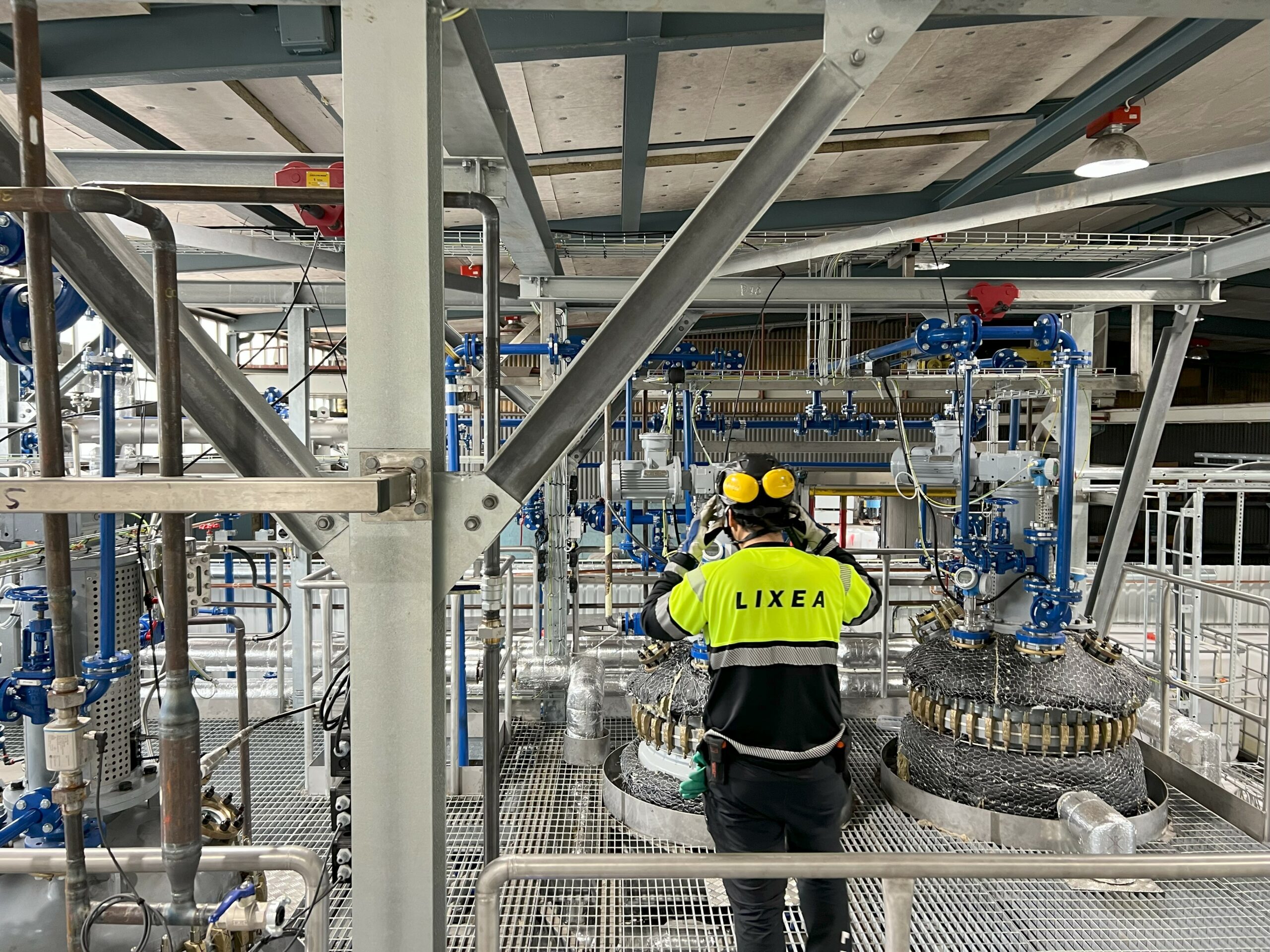
ExpandFibre Ecosystem member Lixea develops a revolutionary technology for valorising waste streams into functional materials
MembersThe ExpandFibre team had a chat with Dr Florence Gschwend, CTO and one of the three co-founders at Lixea, for an introduction to the company’s history, insight into the company’s current activities and Lixea’s visions for the future.
Florence, a Swiss native, completed her Masters’ and PhD studies at Imperial College London, where she also met the other co-founders of Lixea – Professor Jason Hallett and Dr Agi Brandt-Talbot, both currently serving on the Lixea board of directors and full-time faculty members at Imperial College. During her studies Florence explored the potential of ionic liquids as solvents in biomass fractionation processes – her scientific studies combined with the university’s strong emphasis on business and entrepreneurship training forming the foundations of Lixea in 2017.
The EU’s EIC Accelerator Pilot project under the Horizon 2020 funding scheme was a key development step for Lixea – the project running from June 2020 to August 2022 – enabling Lixea to build a piloting unit in Bäckhammar, Sweden to further develop their patented fractionation technology based on the usage of ionic liquids. Florence describes the Lixea pilot as a batch operated unit with a capacity of processing approx. 20 kg of feedstock per batch. The main raw materials produced by the pilot unit are cellulose pulp, sulphur-free lignin and other valuable biochemicals such as formic acid and furfural, to name a few.
At their unit in Sweden, Lixea are piloting with various feedstocks incl. spruce saw dust and even sugarcane bagasse which is a residue from sugar production. They are planning to test hardwoods and different agricultural residues next. From a technical standpoint the Lixea process (called Dendronic®) piloted at Bäckhammar is very safe and versatile requiring a moderate overall process pressure, eliminating the generation of odorous emissions linked to many pulping industry processes, as well as utilizing non-volatile and non-flammable ionic liquids as process solvents.
Successfully building a pilot unit during peak COVID-19 was a highly valuable lesson for the Lixea team – battling with challenging global supply chain issues for the procurement of the pilot unit’s equipment, recruiting personnel from another country, and planning travelling during strict quarantine requirements were definite challenges pointed out by Florence, that the team were able to overcome with careful planning, a high level of agility and hard work.
Why did a UK based technology start-up set up their first pilot unit in Sweden, one might ask? Florence explains that the Lixea team had contacts with the Swedish research institute RISE in 2019 for potentially suitable pilot locations in Sweden close to wood feedstocks and overall forest industry expertise, as well as strong links to downstream users of forest based biochemicals – the Bäckhammar site was chosen as the synergy with other forest industry players was seen as very strong.
Florence is understandably very proud of the Lixea team which currently consists of eight full-time employees, of which six are based in Sweden. Although both the forest and chemical industries have been traditionally seen as dominated by middle aged white men, Florence is happy to report that the Lixea team has an excellent gender split with team members having varied international backgrounds.
From the long list of key Lixea collaborators Florence wants to highlight Imperial College London with which Lixea still has very strong ties. Karlstad University is also a key local collaborator in Sweden – a Bachelor thesis student from Karlstad is working with Lixea over the summer. From a commercial standpoint, Lixea has had promising collaborations with players from the molded fibre and sustainable food industries. Florence points out that the work of Lixea CEO Krisztina Kovacs-Schreiner has been fundamental in establishing Lixea in Sweden, Krisztina having moved from London to Sweden to promote the activities of the company in Scandinavia.
Florence highlights that Lixea’s main goal in the near future is to secure funding for a demonstration scale plant in Europe to scale up their processes from the current pilot unit – the planned capacity of the future unit is considerably higher than the current pilot plant at 25,000 tons per year. Also recruiting more personnel with strong engineering expertise is seen as a key future target for the company. Florence points out that one key challenge for scaling up the Lixea technology has been to find suitable construction materials to perfectly fit the Lixea process – luckily those have now been found and they are currently being validated at a pilot scale. The next step is to make sure that the chosen materials also work on a larger demonstration scale. The Lixea team is finding the learnings of other companies as a crucial resource for Lixea’s own scaling-up plans.
As a key connection to the ExpandFibre Ecosystem, Lixea is part of the SUSTAFIT project (Sustainable fit-for-purpose nonwovens). Florence mentions that Lixea has been in contact with Aalto University, Tampere University, and University of Helsinki – also some collaborations have been carried out by start-up companies in Finland.
As a call for all fellow Ecosystem members, Florence mentions that Lixea is very happy to share raw material samples with potential offtakers, with high interest in establishing new value chains based on Lixea’s process outputs: “anyone looking for a new type of cellulose and/or lignin, we are very happy to provide that”, Florence concludes Lixea’s greetings for the Ecosystem.
Visit https://www.lixea.co/ for more information on the company, their patented technology and the team.